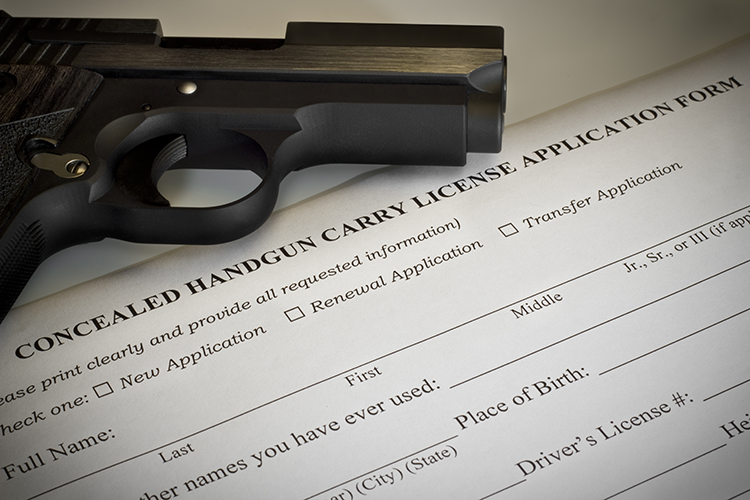Assault weapons that are 'disproportionate to the need for self-defense' can be banned, 4th Circuit says

An en banc federal appeals court upheld Maryland’s ban on assault-style weapons in a 10-5 decision Tuesday. (Image from Shutterstock)
An en banc federal appeals court upheld Maryland’s ban on assault-style weapons in a 10-5 decision Tuesday.
The 4th U.S. Circuit Court of Appeals at Richmond, Virginia, said military-style weapons aren’t protected by the Second Amendment because they are “designed for sustained combat operations that are ill-suited and disproportionate to the need for self-defense.”
Judge J. Harvie Wilkinson III wrote the majority opinion, joined by eight other justices. A tenth justice concurred in the result.
Publications with coverage include the Baltimore Sun, the Baltimore Banner, Reuters and the Associated Press. How Appealing linked to the coverage and the Aug. 6 decision.
The 4th Circuit previously upheld the Maryland law in a 2017 decision, but the U.S. Supreme Court rejected part of the appeals court’s approach when it ruled in a different 2022 case, New York State Rifle & Pistol Association Inc. v. Bruen, according to the appeals court.
The Supreme Court’s June 2022 decision in Bruen struck down New York’s requirement that “proper cause” must be shown to obtain a concealed-carry gun license. Gun regulations should be evaluated using the Second Amendment’s text and the nation’s historical tradition of firearms regulation, the Supreme Court said.
In the new decision, Wilkinson concluded that the 2013 Maryland law “fits comfortably within our nation’s tradition of firearms regulation.” The 2013 law is an example of states regulating “excessively dangerous weapons” when their “incompatibility with a lawful and safe society becomes apparent,” he wrote.
In his dissent, Judge Julius N. Richardson said the Second Amendment “is not a second-class right subject to the whimsical discretion of federal judges. Its mandate is absolute and, applied here, unequivocal.” His dissent was joined by four other judges.
“The majority cherry-picks various regulations from the historical record and pigeonholes them into its preferred—yet implausible—reading of our nation’s historical tradition of firearms regulation,” Richardson said.
Wilkinson responded that the dissent’s approach would be a blow to the government’s obligation to ensure safety. Under the dissent’s reasoning, “arms upon arms would be permitted in what can only be described as a stampede toward the disablement of our democracy in these most dangerous of times,” Wilkinson said.
Wilkinson is an appointee of former President Ronald Reagan, while Richardson is an appointee of former President Donald Trump.
The 4th Circuit devoted much of its analysis to the modern dangers of assault weapons, said Michael I. Meyerson, a professor at the University of Baltimore School of Law, in an interview with the Baltimore Sun.
“The majority spent a lot of time talking about something other than history,” Meyerson told the Baltimore Sun. “Even though that is incredibly powerful, it is not necessarily legally relevant, according to the Supreme Court’s straitjacket” in Bruen, he said.
The 4th Circuit case is Bianchi v. Brown.



